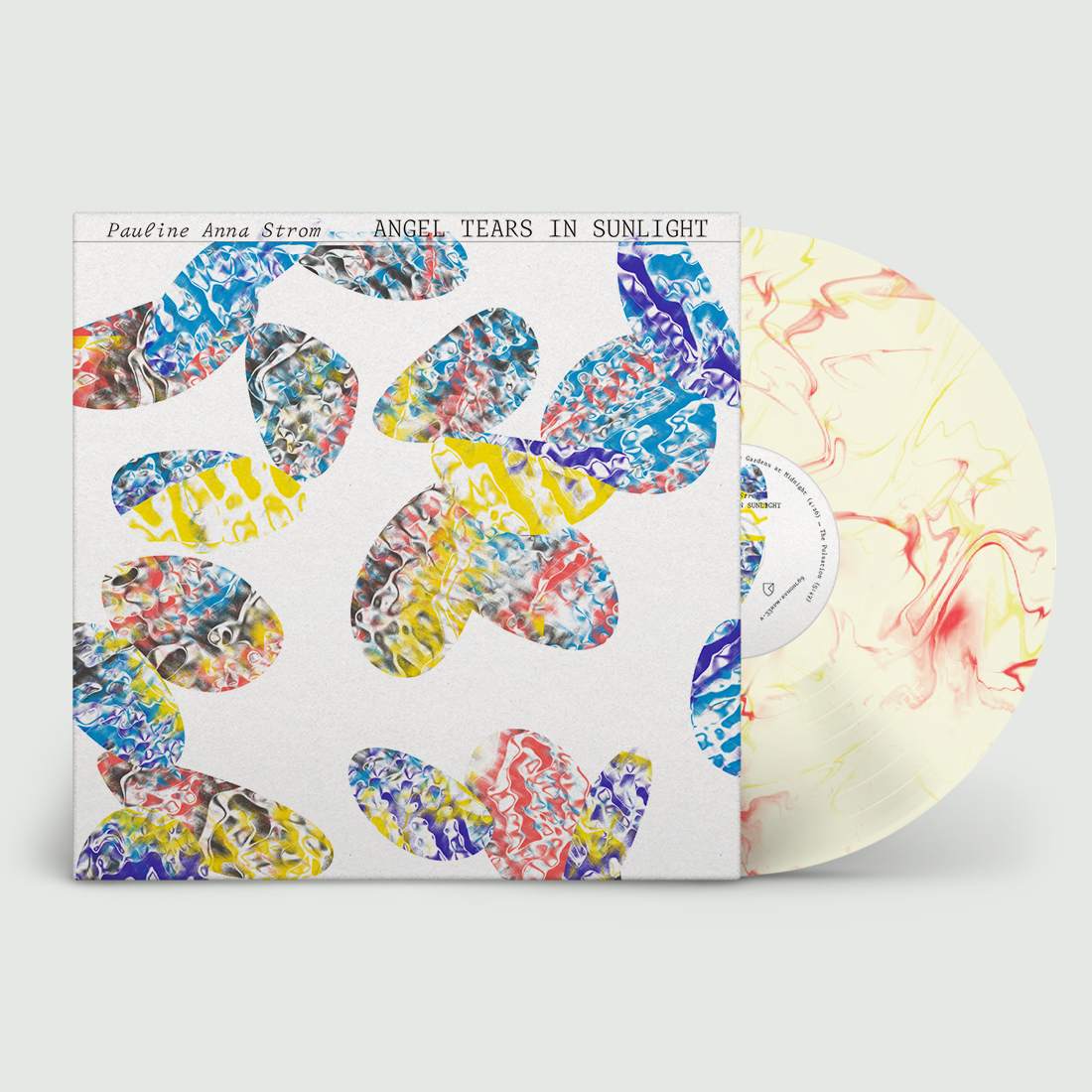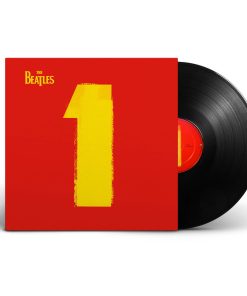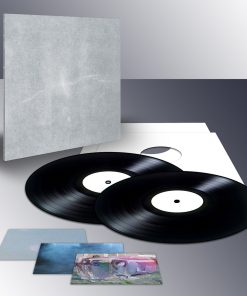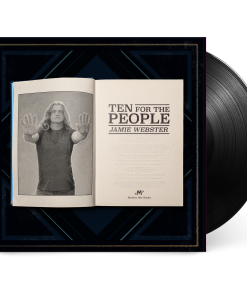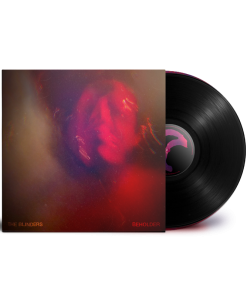Angel Tears In Sunlight: Limited Edition Red + Yellow Swirl Vinyl LP Pauline Anna Strom
$ 21,99 $ 13,19
Angel Tears in Sunlight is Pauline Anna Strom’s first album in over thirty years; an assemblage of music that refracts the expansiveness, and minutiae, of imagined realms while embracing the kaleidoscopic echoes of our distant epochs. The capacity to collapse time might elucidate the enigma of Pauline Anna Strom. A mystic force in music, emerging during the dawn of new age as the Trans-Millenia Consort, the pioneering synthesist channelled primordial energies into future-facing sound through a series of full-length releases between 1982 and 1988.
Little was known about her, except by a constellation of devoted followers who saw a unique legacy forming amidst the (mostly male) synthesist canon of the time. Following the 2017 release of Trans-Millenia Music, an anthology revitalizing the most evocative parts of Strom’s catalog, the Bay Area visionary sensed the universe telling her to return to music. As with her work in the 80s, Angel Tears in Sunlight was composed and recorded in the same San Francisco apartment where Strom has lived for almost four decades in synthesis with her machines and “dinosaurs.” Populated by a compact array of modern instruments that streamline the sound of her analog past and her beloved iguanas, Little Soulstice and Ms Huff, the terrarium of her home forms an intimate yet limitless ecosystem that defies the constraints of the outside world. Within this sanctuary, Strom becomes lost in time, drawing on the ancient energies of her inner visions. Her hardware forms the crux of translating these ideas into sound. “It’s the only way this stuff can be pulled out of myself, the universe, Little Soulstice, an ammonite…,” Strom notes. “It couldn’t be done without this machinery, because there’s no other way to draw and capture these frequencies into sonic interpretation.” Strom’s process of recording transient live-takes enriches the mystery of her work. She renders the machinery a composer itself, a cohabitation with a living other. “Many musicians wouldn’t go that far because of ego,” Strom muses. “The equipment has to become part of you and your creativity.”
Fast Delivery and Professional Packaging
Our long-standing relationship with UPS FedEx DHL and other carriers around the world gives us the ability to provide various shipping options. Our warehouse personnel will pack all goods to our exacting requirements. Your goods will go through an extensive inspection and will be securely secured prior to being shipped. Every day we ship thousands of packages to clients from all over the world. This is a sign of our determination to be the largest online retailer in the world. There are distribution centers and warehouses in Europe and the USA.
Orders that contain more than 1 item are assigned processing periods in accordance with the item.
Prior to shipment, all purchased items will be thoroughly inspected. The majority of orders are shipped within 48 hrs. Delivery is expected to take between 3 and 7 days.
Returns
The stock is dynamic and we do not completely manage it because multiple parties are involved, which includes our factory and warehouse. The actual stock can fluctuate at any time. It's possible that the stock may run out after your order has been processed.
Our policy lasts for 30 days. Unfortunately, if thirty days have passed from the date you purchased the item, we will not be able to offer you a return or exchange.
The item should not be used, and it must be in the original packaging. The item should be in the original packaging.
Related products
Vinyl LP
Vinyl LP
Vinyl LP
Vinyl LP
Vinyl LP
Vinyl LP
Vinyl LP
Vinyl LP
Vinyl LP
Vinyl LP
